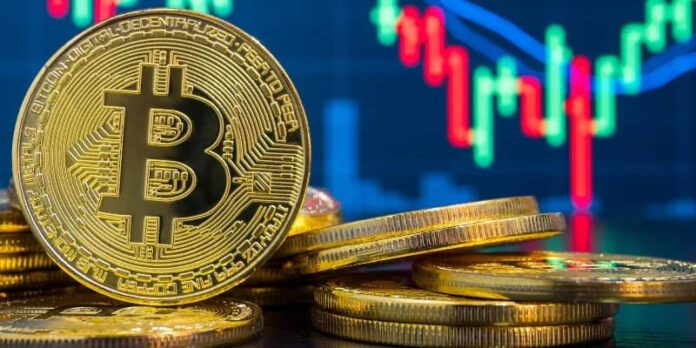Central Bank Digital Currency: Is ‘NIGCOIN’ Possible?
TECH DIGEST – On February 5, this year, the CBN posted a circular that stated, “dealing in cryptocurrencies or facilitating payments for cryptocurrency exchanges is prohibited.” Institutions were told to “identify persons and/or entities” transacting with cryptocurrency or operating crypto exchanges. The CBN clarified this statement to say trading in cryptocurrency is not banned but CBN wants to “prohibit transactions on cryptocurrencies in the banking sector.” In effect, a ban.
Nigerians responded to this directive from the CBN by simply moving to apps that allow Peer-to-Peer cryptocurrency transactions such as the cryptocurrency trading firm, Binance.
Binance has specifically targeted the Nigerian market in the wake of the CBN ban on cryptocurrencies by creating an NGN FIAT/NGN pair. This allows Nigerians to buy and sell Naira/USD by simply buying cryptocurrencies on the Binance platform and converting to Naira/USD.
I looked at the Naira to the USD exchange rate; it was N410 on the CBN website but N495 on the currency trading website, AbokiFX. According to CBN, if I receive 1$ via a Nigerian bank, I also get N5 addition, from the receiving bank, thus, the CBN is indirectly matching the AbokiFX rate to remove the disparity.
This N5 promotion policy still falls short. I can receive USD inflow from abroad, but if I wanted to import rice, I cannot approach my bank to buy 1$ at N412 which is the Importers-Exporters rate. Why? Because CBN has rice among the items that are banned from accessing the CBN FX system. Thus to import rice, I have to go to “AbokiFX” and get $1 at 495. This is how inflation is imported into Nigeria.
The CBN understands this, that why it tries to keep the Naira/USD exchange rate as low as possible so that the pass-through effect of a weak naira does not make local prices rise. The problem is this, if demand for USD exceeds supply, the exchange rate of the Naira with the Dollar will favour the Dollar and see the Naira weakening. The solution to a “strong” Naira is not to artificially reduce the demand for CBN dollars but to increase the inflow of USD to Nigeria.
Nigeria gets her forex from many sources including:
- Exports
- Foreign Direct Investment/Foreign
- Portfolio Investment (FDI/FPI)
Loans - Remittances
Let us talk about remittances
On November 30, 2020, the CBN said that beneficiaries of diaspora remittances through International Money Transfer Operators (IMTOs) would thenceforth, receive such inflows in foreign currency (US Dollars) through the designated bank of their choice. The CBN can extend this directive to include Fiat Stabilized Stablecoins (Stablecoins).
Read Also:
A stablecoin is a type of digital currency designed to maintain a stable value by being pegged to another asset, like a FIAT currency or another cryptocurrency. So, a stable digital currency like the USDT or BUSD is essentially backed 1:1 by USD. A stablecoin can be traded and exchanged for FIAT Naira, via an exchange. So, my foreign partners can debit their bank account and buy $1000 worth of USDT, a stablecoin, and transfer to me. I simply sell that BUSD for Naira at my price point, at zero transaction cost. Again, zero transaction cost.
Cost is a key factor here. The Brooking Institute says, “The fees paid to remittance service providers to send money to Africa average nearly 9 percent— the highest rate in the world and three times the Sustainable Development Goal target for remittance costs (3 percent).”
Currently, the CBN and in essence, Nigeria, is losing out as more and more of these remittance transactions happen on private exchanges like Binance, which means less USD is flowing to the CBN Import-Export Window. The Binance exchange trading the BTC/NGN pairs is doing an average of N1billion a day. The CBN is essentially competing with these Peer-to-Peer exchanges and the deciding factor for the holder is who can offer a higher rate for USD. If the CBN does not recognize and address this trend, it will continue to see a reduction in remittances.
The next evolution of this is for the CBN to encourage and leverage its network of local banks and the FINTECH community in Nigeria to create a blockchain-enabled Naira stablecoin to enable faster and cheaper remittances and inter Nigeria trade.
Thus, instead of my partners buying BUSD issued by Binance, they can buy, for example, NIGCOIN, a stablecoin issued by an Industry group of Nigerian banks who fund it by creating a separate fund of USD deposits, Thus, if NIGCOIN fund size is $1 billion, bank A can deposit $100 million to fund its own 10% of the currency, and so forth.
Extend this to private sector FPI investors as well. This will mean that private individuals and corporates (e.g. MTN or Dangote Cement) can invest in that NIGCOIN Fund as well. The CBN can allow the Nigerian banks to fund the 45 items banned from CBN fx-trades via the NIGCOIN, thus the bank will compete for USD deposits from tourists and even Nigerians. This way the CBN does not need to collateralize her foreign reserves to back the NIGCOIN.
This NIGCOIN can be a natural stepping stone towards an ECOWAS currency as other smaller West African nations will hold NIGCOIN because of its USD peg which counters inflation.
The CBN can then reap the benefits of increased remittances into Nigeria, by widening its product mix without the volatility of cryptocurrencies, which of course, increases the business, revenues, and taxes that will flow from the banks.
The Nigerian banks, via the NIGCOIN, will be able to attract FPI to Nigeria like Eurobonds by simply marketing the NIGCOIN and via mining and burning, maintaining that peg to that basket.
This, I believe, is a good way for the CBN to start this inevitable journey into the blockchain ecosystem. JPMorgan Chase has introduced JPM COIN, a stablecoin backed by its reserves. Tunisia has its eDinar, Senegal has an eCFA, Dubai has the EmCash. Nigeria must ensure she remains in play.



















